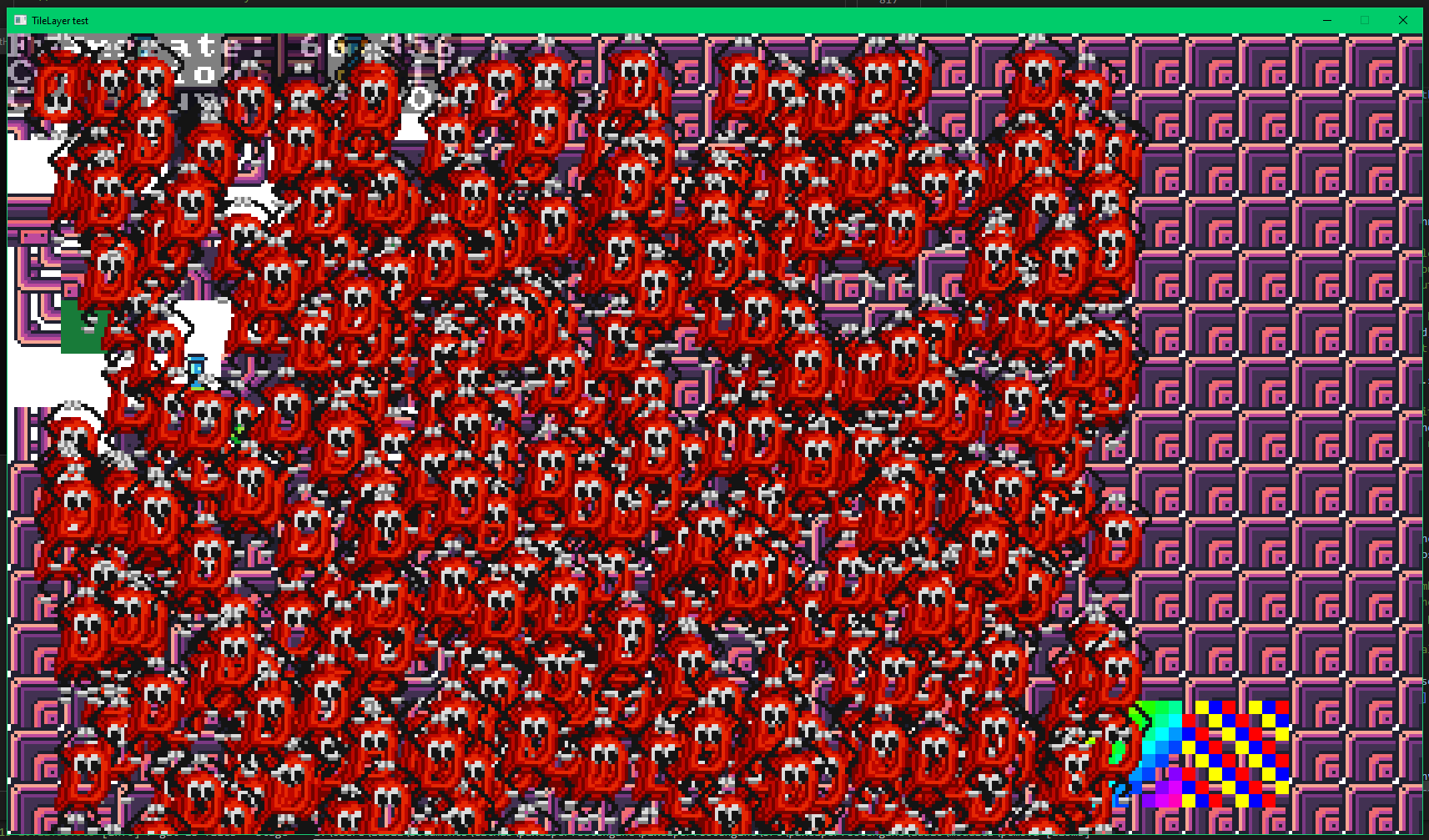

ZILtoid1991
Game developer and artist.
Spoken languages: Hu, En, some Jp
Programming languages: C, C++, D, C#, Java
Mastodon: @ZILtoid1991
Github: https://github.com/ZILtoid1991
- 4 Posts
- 38 Comments
Also GPU drivers.
If you’re mad at NVidia for their closed-source drivers, then remember that ARM seldom makes their Linux drivers available for free, so you have to either have to deal with absolutely no GPU driver while the CPU does the graphics rendering (might not be a big deal on a NAS though), or with open source drivers that are less capable than the Nouveau drivers and even fiddlier to install. The ARM Mali driver issue is so bad I was legit thinking on a solution to run the Android binary blobs (which at least are available by ripping them off from the Android kernel) on regular Linux, a lot of function call redirects would likely take care of that issue.


https://peoplemaking.games/@PixelPerfectEngine/111071605716108838
Shameless plug of my own game engine, in case someone needs an alternative, and is happy with pixelart graphics.


Mine is quite minimalistic, and relies for the D runtime and standard library (or other D libraries) for many things. Also my engine is primarily geared towards retro pixelart games, and works as such. Currently, the CPU renders to a low-res texture (as seen in emulators), which is then stretched to a higher resolution, later on it’ll replaced by custom shaders that do color lookup and render directly to a texture (which is quite complicated, simpler methods would cause easily misalignable pixels, thus defeating the engine’s purpose, even if some likes the “smooth” scaling from other engines).


It’s usually quite difficult, since most other engines use C++, which is pretty different from C# in many aspects. My engine (PixelPerfectEngine - 2D game engine primarily aimed at retro pixelart games, link: https://github.com/ZILtoid1991/pixelperfectengine ) is written in D, which is much closer to C# in a lot of aspects, however my engine is far less capable than Unity, still needs a lot of development, and also has it’s own quirks that make some features inconveinent to implement or add.


A simple downgrade solved the issue, but regardless of that I’ll try to look into some alternatives, especially since VS has licensing issues, which is fine for me as I use it for open source projects, but might not be fine for others who would use it for closed source projects, and I made my open source engine in a way it allows for be used in closed source projects.
I have a few suggestions:
- Better education. Don’t scare people who’re learning programming away from the lower-level stuff, especially as people are even getting scared to use type declarations, not just the pointers (of which I was fearmongered with in college, as they told me Java is the future).
- Better portable APIs. Thanks to WebAssembly, one could easily have both something portable in a web browser and as a native desktop app, except instead we get browsers running said applications. I had some thinking about such a project, but then I remembered my iota project (a D-native replacement of SDL/SFML/GLFW, but without bloat by including standard library features), and then stopped thinking about it immediately, since a much smaller project already causes me too much headache. (Someone has a handy guide on win32 API? I have issues on getting certain messages produced, like input language change, and I don’t know if I glimpsed over some functions that enable them and just weren’t included in the documentation of the input language change event codes.)
I’m a D developer, and D is so far the best language I’ve tried. It has very powerful meta programming capabilities, looks much nicer than Rust, and supports multiple paradigms. My main gripe is the lack of libraries, but it’s pretty easy to either write your own, or a binding to a C or C++ one. I wrote a couple of my own libraries, and I’m currently writing my own replacement for SDL, called iota, and I aim it to be a smaller version of it (e.g. not including things into it that already exist in the Runtime and Phobos).
I really like multi paradigm programming, as most programming paradigms are good at a select few things, while over-complicate others.






“Make your own games!”
“Okay!”
“No! Not like that!”